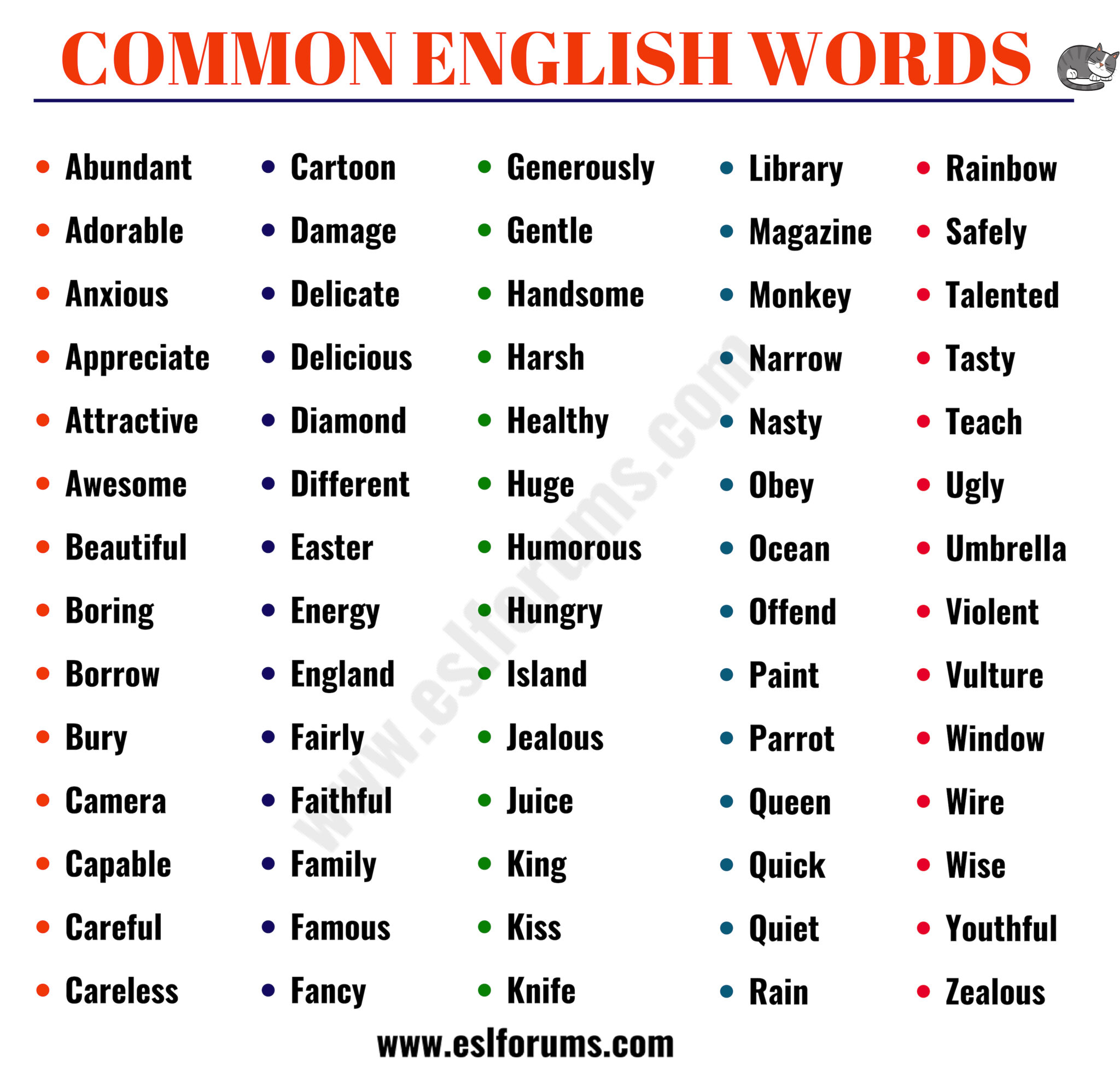What do you mean when you say, “hard English words”?
Hard English words are terms that are difficult to comprehend, spell, or pronounce. The difficulty of a word is typically determined by a person’s age, region, vocabulary, and English language expertise.

The following are some of the hard English words:
- Disparate
- Cajole
- Gregarious
- Ephemeral
- Ignominious
- Hegemony
- Quinoa
- Conscience
- Liaise
- Cupboard
Difficult words should be used with caution by content providers since they can affect the meaning of a phrase.
They may also have an impact on your ability to read. As a result, your ability to connect with your target audience will be harmed. Using too many hard English words or phrases might harm your potential to rank high in search engine results.
Keep in mind that your objective is to provide content that is easy to locate and engage with. Understanding what your target audience is talking about and how they are talking about it can help you produce the best content for them.
Most authors struggle to utilize these words because they are difficult to hear or speak hard English words. They might also have deeper significance.
When we refer to “hard English words,” we are typically talking about words that are challenging to pronounce, spell, or understand due to their complex or uncommon nature. These words often deviate from regular spelling or pronunciation rules, contain unfamiliar combinations of letters or sounds, or have intricate meanings that require contextual understanding.
The difficulty of English words can vary depending on an individual’s language background, familiarity with the English language, and overall linguistic proficiency. What may be challenging for one person might be effortless for another. However, some words tend to pose difficulties for many learners due to their unique characteristics. These words can fall into different categories:
- Pronunciation Challenges: English has numerous words with irregular pronunciations, where the spelling does not correspond directly to the way they are spoken. Examples include “colonel” (pronounced “kern-ul”), “choir” (pronounced “kwai-ur”), or “mnemonic” (pronounced “nee-mon-ik”).
- Spelling Challenges: English spelling can be complex and inconsistent, with words that may not follow typical phonetic patterns. Words like “accommodation,” “rhythm,” or “pharaoh” can pose difficulties due to their irregular spelling.
- Uncommon Vocabulary: English has an extensive vocabulary, and some words are less commonly used in everyday conversation. These words, such as “obfuscate,” “garrulous,” or “sesquipedalian,” might be unfamiliar to non-native speakers or even some native speakers.
- Homophones and Homographs: English contains words that sound the same but have different meanings (homophones) or words that are spelled the same but have different meanings (homographs). Examples include “two/to/too,” “bear/bare,” or “lead/lead.”
- Technical and Specialized Terminology: Certain fields, such as medicine, law, or technology, have specialized terminology that can be challenging for those without domain-specific knowledge. Terms like “anesthesiology,” “jurisprudence,” or “algorithm” may present difficulties due to their technical nature.
It’s important to note that the difficulty level of words is subjective and can vary based on an individual’s language proficiency and exposure to the English language. What may be considered hard for one person might be straightforward for another. Nonetheless, exposure, practice, and continuous learning can help individuals become more comfortable with challenging English words.
In conclusion, “hard English words” refer to words that are challenging to pronounce, spell, or understand due to their complexity, irregularities, or uncommon usage. By recognizing and actively engaging with these words, learners can improve their proficiency in the English language and expand their vocabulary.
The Most Hard English Words in the English Vocabulary

A buddy of mine once spent over an hour in the supermarket hunting for a sauce. Wuss-ter-sheer (Worcestershire) sauce was requested by my friend’s wife.
The English language is known for its vast vocabulary, encompassing a wide range of words with different levels of difficulty. While the perception of “hard” words may vary among individuals based on their language proficiency and exposure to English, certain words are often considered challenging due to their complexity, unusual spellings, or intricate meanings. Here, we present a selection of some of the most commonly recognized hard English words.
- Pneumonoultramicroscopicsilicovolcanoconiosis: Often cited as one of the longest words in the English language, it refers to a lung disease caused by inhaling very fine silica dust. Due to its length and complex structure, it is often used as an example of a challenging word.
- Antidisestablishmentarianism: This word refers to a historical movement opposing the removal of the Church of England’s status as the established church in 19th-century Britain. It gained popularity for its length and complexity.
- Supercalifragilisticexpialidocious: Made famous by the movie “Mary Poppins,” this coined word is used to represent something extraordinary or amazing. Its length and unique structure make it challenging to spell and pronounce.
- Floccinaucinihilipilification: This word refers to the act of regarding something as insignificant or worthless. It gained attention for being one of the longest non-technical words in the English language.
- Sesquipedalian: Describing a tendency to use long words or characterized by long words, “sesquipedalian” itself is an example of its meaning. Its pronunciation and spelling can present challenges.
- Onomatopoeia: This word refers to words that imitate sounds, such as “buzz” or “bang.” Its spelling and pronunciation may pose difficulties, particularly for non-native English speakers.
- Worcestershire: Pronounced “wuh-stuh-sher,” this word refers to a type of sauce. The spelling does not reflect the pronunciation, making it challenging for many learners.
- Epitome: Pronounced “ih-pit-uh-mee,” it means a perfect example or embodiment of something. The stress on the second syllable and the discrepancy between spelling and pronunciation can make it tricky.
- Quinoa: Pronounced “keen-wah,” it refers to a popular grain. The unfamiliar spelling and pronunciation can be challenging for those encountering it for the first time.
- Chiaroscurist: Referring to an artist who specializes in the use of chiaroscuro, the contrasting play of light and shadow in artwork, this word presents challenges due to its pronunciation and specialized nature.
It’s important to note that the difficulty of words can be subjective and may vary depending on an individual’s language background and familiarity with English. Moreover, exposure, practice, and continuous learning can help individuals become more comfortable with challenging English words.
While these words may be considered hard by many, it’s essential to focus on building a solid foundation of vocabulary and language skills through regular practice and exposure to a variety of words and contexts. By expanding one’s vocabulary and improving overall language proficiency, even the most challenging English words can become more manageable.
My unfortunate pal was only able to find Wor-cess-ter-shayr sauce.
So, as you can see, certain words are more hard English words to pronounce than others.
In my case, the wife correctly pronounced Worcestershire. However, the spouse misread and misspoke it, causing misunderstanding.
Here are some examples of often mispronounced terms and how to pronounce them correctly.
Anemone
- aa-neh-mowniy is the correct pronunciation.
- aa-neh-mown is incorrect.
Epitome
- ih-pit-uh-mee is the correct pronunciation.
- epi-tohm is incorrect.
Boatswain
- boh-suhn is the correct pronunciation.
- boht-sweyn is incorrect.
Debauch
- dih-bawch is correct.
- De-botch is incorrect.
Colonel
- ker-nuhl is the correct spelling.
- ko-lo-nel is incorrect.
Faux
- fow is correct.
- fohx is incorrect.
Hegemony
- Correct pronunciation: huh-jeh-muh-nee
- Hi-jeh-muh-nee is incorrect.
Genre
- zhahn-ruh is the correct spelling.
- jen-re is incorrect.
Knell
- nel is correct
- kn-ehl is incorrect.
Mauve
- mahv is correct.
- mohv is incorrect.
Ignominious
- ig-nuh-min-ee-uhs is the correct spelling.
- ig-nuh-min-uhs is incorrect.
Onomatopoeia
- Correct pronunciation: aa-nuh-maa-tuh-pee-uh
- On-uh-mat-uh-pee-uh is incorrect.
Salmon
- sa-mn is the correct spelling.
- Sal-mn is incorrect.
Cupboard
- kuh-brd is the correct spelling.
- kap-bord is incorrect.
Posthumous
- paas-chuh-muhs is the correct pronunciation.
- pos-chuh-muhs is incorrect.
Quinoa
- keen-wah is correct.
- Key-no-ah is incorrect.
Segue
- seh-gwei is correct.
- Se-ge is incorrect.
Niche
- neesh is correct.
- nitch is incorrect.
Liaison
- lee-ei-zaan is the correct spelling.
- False: lie-a-zon
Not all native English speakers may employ the same challenging terms. It’s important to remember that most hard English words may be used in a variety of ways depending on the context, area, and accent.
Furthermore, within a dialect, several of these terms might have a range of meanings.
For example, Australians could use the phrase “confusing” instead of “incomprehensible.” “Ugly” might be used by Swedes, whereas “rude” could be used by the British.
Some English-speaking communities may struggle with one or two of these terms, while others may not have any.
What Characterizes a Hard English Words?
The fact that hard English words are difficult to write, pronounce, or understand is what makes them tough.
You’ve undoubtedly noticed that you’ve used the same term numerous times in your work. Alternatively, you may have changed the way you use a certain term to ensure that you are appropriately speaking or expressing it.

It’s not simple to learn to write using complex words. Even with a dictionary, there are still a lot of terms that are difficult to pronounce or spell.
Always pay attention to what you’re saying and how you’re expressing it while utilizing these terms.
The English Vocabulary’s Most Commonly Misspelled Hard English Words
We frequently misspell words because we spell them according to how they sound when spoken. Words with silent letters or those with repeated characters are usually the hard English words to spell.
How many times have you spelled “Mississippi,” “accommodate,” or “committee” incorrectly?
Spelling is important, especially if you’re a writer. One approach to improve your spelling is to memorize and use difficult-to-spell terms as much as possible.
You may also utilize writing editors that include spell checks, such as INK or Grammarly. Following are a few of the most often misspelled terms in the English language.
- Apparent
- Drunkenness
- Dumbbell
- Amateur
- Conscience
- Exaggerate
- Foreseeable
- Gauge
- Harassment
- Irresistible
- Judgment
- Knowledge
- Liaise
- Millennium
- Noticeable
- Occurrence
- Possession
- Questionnaire
- Referred
- Vacuum
What to Keep in Mind Before Using Hard English Words?

Some terms are more suitable in everyday discourse than others. Others, on the other hand, are more suited to writing.
There is no hard and fast rule. This is, nevertheless, a good rule of thumb for demonstrating your grasp of the English language.
We’ve all come across tough terms that we’d want to avoid as much as possible.
You must give useful and relevant information to your readers to pique their interest in what you’re attempting to say. To do this, you must carefully select your words.
The definition of a hard English words is very subjective. However, if you can utilize them in a way that pleases you, then do so in your work.
You may go on to writing for a specific target audience if you’re sure you’ve used your words correctly. Your choice of words will be influenced by your aims and ambitions.
When picking your words, you should also consider cultural differences.
English is one of the world’s most widely spoken languages. However, this does not imply that it is utilized similarly to other languages.
If you’re going to utilize tough terms in your writing, keep them to a minimum. This will assist you in improving your writing abilities of hard English words.

